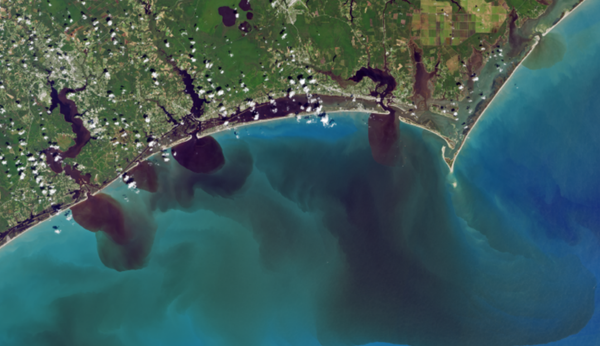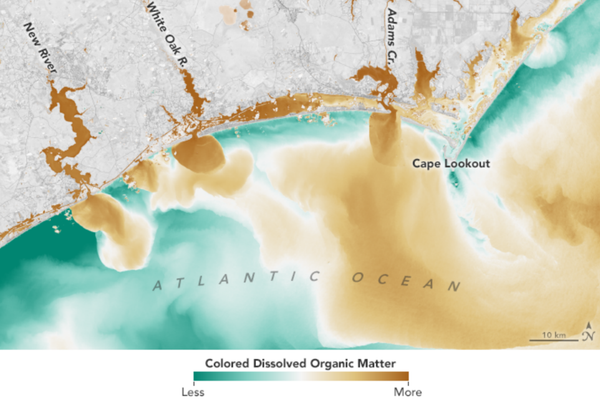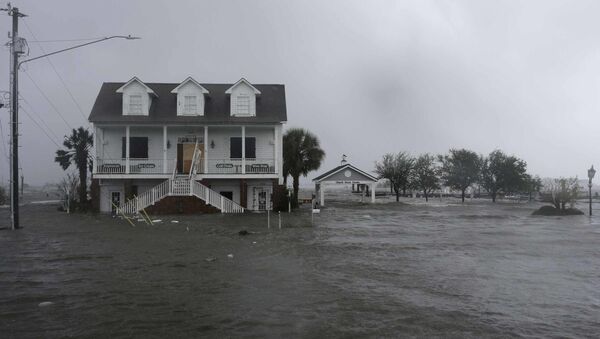Photos snapped on September 19 by NASA show how several rivers in North Carolina, among them the White Oak River, New River and Adams Creek, have been so contaminated with soil, sediment, pollution and other debris that they have become discolored, officials stated in a news release.

The images were recorded by the Landsat 8 satellite, which captured several images before and after Florence blew through the region.
"The second image combines visible and infrared data from Landsat to reveal the amount of colored dissolved organic matter (CDOM) in those waterways," the statement reads. "Organic matter — such as leaves, roots, or bark — contains pigments and chemicals (such as tannins) that can color the water when they dissolve."
"Depending on the amount of dissolved particles, the water in natural-color imagery can appear blue, green, yellow or brown as the CDOM concentration increases," the release notes.

Making landfall on September 14, Florence dumped nearly 8 trillion gallons of rain across the Tar Heel State, causing severe flooding. Joshua Stevens, a NASA data visualizer and cartographer, took to Twitter last week and stated that Florence "brought a surge of new water to North Carolina."
According to officials with the University of North Carolina, water discoloration from pollutants can lead to mass fish kills and a slew of other environmental issues, The News & Observer reported.
"In the discharges after hurricanes Floyd and Matthew, these dead zones grew large enough to affect shellfish and finfish habitats for miles," Hans Paerl, a scientist for the university, told the publication. "Fish kills lasted for months."
NASA's release comes days after crews from North Carolina's Penderlea Fire Department released images of dead fish lying across the I-40 highway. Florence killed dozens of people and caused between $38 billion and $50 billion in damages, Sputnik previously reported.
The National Weather Service reported that North Carolina's Cape Fear and Neuse Rivers won't return to normal levels until October. The Waccamaw River, however, is expected to reach its peak flood surge on Wednesday.



